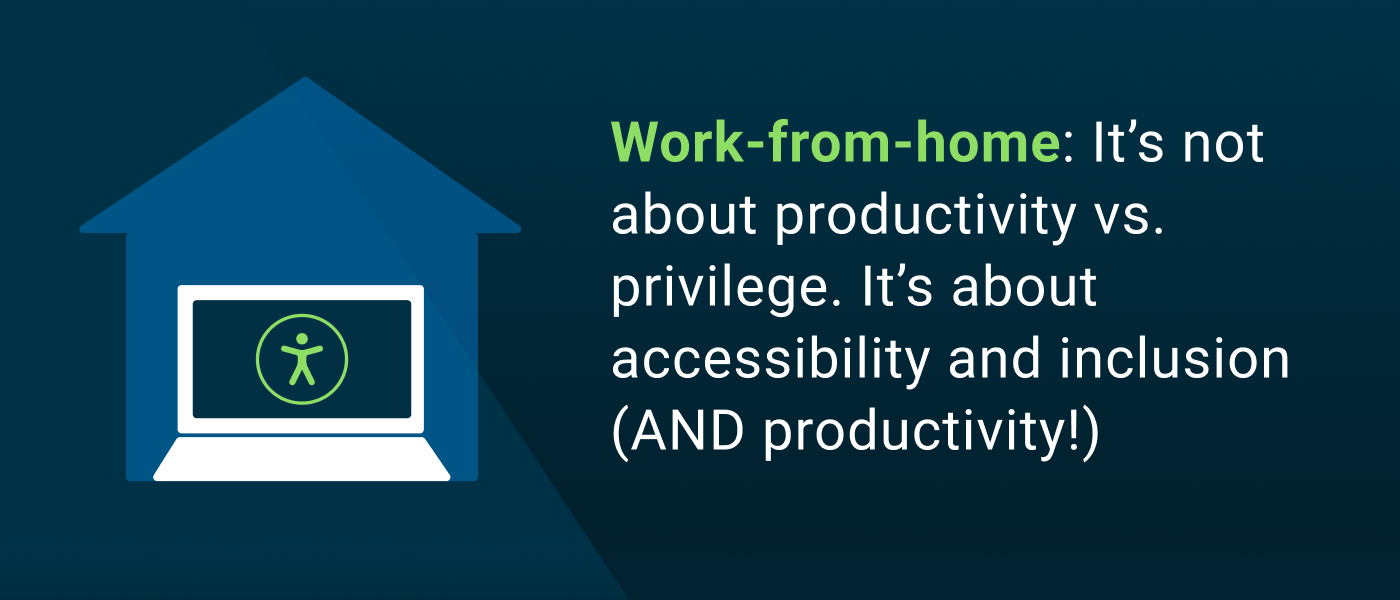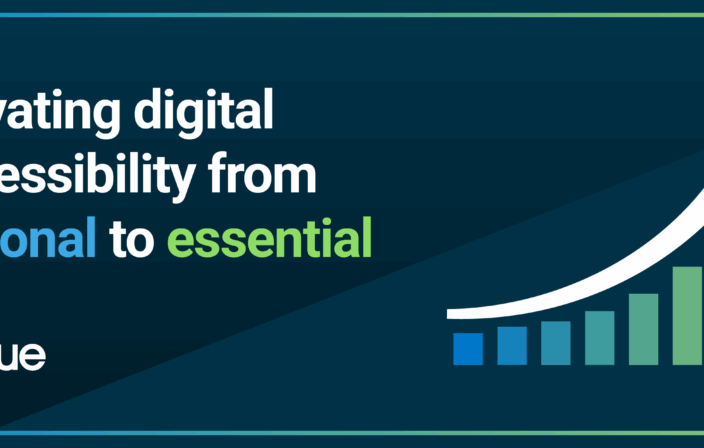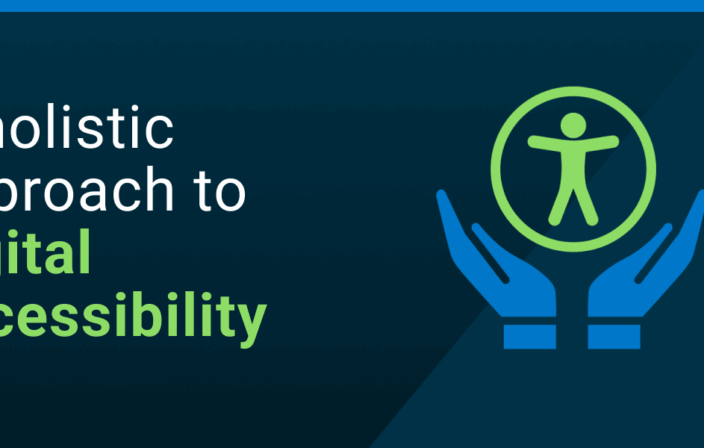October is National Disability Employment Awareness Month (NDEAM), a wonderful and important opportunity to “celebrate the value and talent workers with disabilities add to America’s workplaces and economy.” NDEAM is part of an initiative from the U.S. Department of Labor’s Office of Disability Employment Policy, whose purpose is to “confirm our commitment to ensuring disabled workers have access to good jobs, every month of every year.”
With that purpose in mind, this year’s official theme is “Access to Good Jobs for All.”
The theme is timely, especially given how debates around work-from-home (WFH) policies increasingly fail to recognize that WFH represents a literal lifeline for millions of employees who have a disability.
Productivity vs. privilege, or accessibility and inclusion?
The WFH conversation has degenerated into a simplified binary pitting corporate productivity on one side against perks for privileged professionals on the other. We must redirect this conversation to emphasize how WFH can and should be a powerful tool for accessibility, inclusion … AND productivity!
Amazon made headlines recently when the company announced it would require employees to return to the office five days a week. In his announcement, CEO Andy Jassy stated his belief that having everyone physically in the office would create “the right culture.” He also said the company would be “better set up to invent, collaborate, and be connected enough to each other and our culture to deliver the absolute best for customers and the business.”
In 2023, when Starbucks CEO Howard Schultz mandated a physical return to the office, he repeatedly referred to remote work as a “privilege.”
Unfortunately, too many companies overlook how flexible work arrangements improve accessibility. WFH provides those with disabilities the opportunity to work in environments they can control, reducing stressors and distractions that are typical in physical office spaces. It also resolves challenges related to commuting, sensory overload, and inaccessible office layouts.
If companies view WFH purely through the lens of productivity, outmoded understandings of workplace culture, or the comfort of high-status employees, they risk ignoring the very real benefits it provides to a broader, more diverse workforce.
Why accessibility matters
Accessibility isn’t just about making buildings, websites, or apps usable. It’s about empowering people to fully participate in work and society. While many organizations have taken steps to improve digital accessibility, ensuring that physical work environments, at home or in the office, are inclusive is critical.
In a hybrid or WFH model, digital accessibility becomes the great equalizer.
Making sure that collaboration tools, company software, and even digital training materials are accessible to employees with disabilities must be a priority. At Deque, we’ve seen firsthand how digital accessibility leads to stronger, more inclusive, and more productive workplaces.
It’s no longer about “allowing” employees to work from home; it’s about building inclusive environments where all employees can thrive—wherever they are.
Moving beyond simple productivity metrics
Companies that focus only on a narrow interpretation of the productivity question miss a larger opportunity. When employees with disabilities have the opportunity and support to work remotely, they often experience increased engagement, reduced turnover, and higher job satisfaction. This, in turn, can fuel increases not just in productivity but ideation, innovation, and collaboration as well.
For NDEAM, let’s challenge businesses to broaden their view. Instead of just narrowly asking, “Is WFH making our workforce more productive?” the question should be: “Are we making work accessible for everyone?” In asking this question, our reasoning is clear: greater accessibility leads to a greater quality of work life, which results in greater work performance.
Accessibility as a strategic business advantage
By ensuring that remote work remains a viable option for those who need it, companies can better support their current employees, tap into a wider pool of future talent, and foster a truly inclusive and productive work culture.
At Deque, we believe that accessible work environments are a strategic advantage, not just a compliance checkbox. Businesses that take the lead on this are more likely to attract and retain diverse talent, build a positive reputation, and avoid legal risks associated with inaccessible work practices.
As more companies reassess their WFH policies, let’s make sure accessibility remains part of the conversation. Let’s remember that the future of work must be accessible, equitable, and inclusive for everyone—not just those whose voices dominate the headlines.




